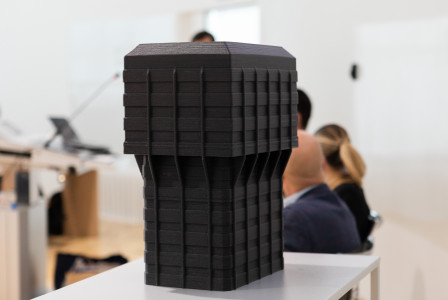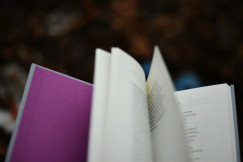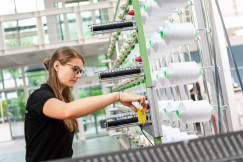Articles
27 October 2025
Bocconi university’s pilot projects for MUSA: from repair to sharing, designing the future of circularity
Articles
27 October 2025
R&I, techniques and technological solutions
Sustainable competitiveness
Textile
+5 more
Login / create an account to be able to react
-
7

Within the MUSA project, Bocconi University has developed three pilot initiatives, DuckCare, Dalla Moda al Design, and Biblioteca degli Oggetti, that demonstrate how circular economy principles can inspire real and scalable solutions. By linking research, businesses, and communities, these projects promote repair, material reuse, and shared access, paving the way for a more sustainable and collaborative future in fashion, design, and everyday living.
MUSA Spoke 5
Topics
Albania
Armenia
Austria
Belgium
Bosnia and Herzegovina
Bulgaria
Croatia
Cyprus
Czechia
Denmark
Estonia
EU-27
Finland
France
Georgia
Germany
Greece
Hungary
Iceland
Ireland
Italy
Kosovo
Latvia
Liechtenstein
Lithuania
Luxembourg
Malta
Moldova
Montenegro
Netherlands
North Macedonia
Norway
Poland
Portugal
Romania
Serbia
Slovakia
Slovenia
Spain
Sweden
Switzerland
Türkiye
Ukraine
Other
Academic / Research and VET Institutions
Company with 250 or more employees
International Organisations
SMEs (a company with less than 250 employees)
-
Transition Pathway's building blocks
-
-
R&I, techniques and technological solutions
-
Sustainable competitiveness
-
-
Industrial ecosystems
-
-
Textile
-
-
Textiles ecosystem areas
-
-
Fibres, yarns and fabrics
-
Apparel and clothing accessories
-
Household/interior textiles
-
Technical textiles
-
Research and Innovation
-
Share
Within the MUSA (Multilayered Urban Sustainability Action) initiative, Bocconi University has developed three innovative pilot projects that explore how circular economy principles can reshape consumption, production, and community practices in the fashion, design, and everyday life sectors.
The projects, DuckCare, Dalla Moda al Design, and Biblioteca degli Oggetti, exemplify the research-driven innovation and cross-sector collaboration that define MUSA Spoke 5, connecting academia, enterprises, and social organisations to co-create practical pathways toward sustainability. The three pilots also underwent Life Cycle Assessment (LCA) by Spin360, validating its environmental benefits and its potential for circular fashion and design.
DuckCare: Repair as a social and environmental value
Developed with Save The Duck and Prism, DuckCare offers a repair service for down jackets, helping consumers extend product lifespans while reducing waste. Beyond its environmental impact, the initiative has a strong social inclusion dimension: Prism employs people from vulnerable backgrounds, combining circular economy principles with ethical employment.
Through education and engagement, DuckCare promotes repair as a conscious act of sustainability, aligning with Milan’s circular vision of reducing material use, reusing products, and recovering resources.
Dalla Moda al Design: giving new life to post-consumer textiles
In collaboration with Humana People to People Italia, Casati Flock & Fibers, and SuperForma, Bocconi researchers launched Dalla Moda al Design, an experiment in material innovation that transforms post-consumer textiles otherwise destined for landfill into new 3D-printed design objects.
The project’s emblematic prototype, the Velaskello, composed of 85% recycled PLA and 15% recovered textile fibres, demonstrates how fashion waste can be reimagined into new forms of creative production.
Biblioteca degli oggetti: Sharing to reduce waste
The Library of Things introduces circularity to everyday life within the Bocconi community. Students, researchers, and staff can borrow objects for occasional use, avoiding unnecessary purchases and promoting a culture of shared responsibility.
Using an IoT-enabled system of smart lockers, the service ensures simple, secure, and automated borrowing and return processes. Developed with Leila and WIB, the project fosters community engagement and demonstrates how universities can act as living labs for sustainable behavior.
Its scalable model can be replicated across residential buildings, companies, and public spaces, contributing to Milan’s broader circular transformation.
Towards a shared and regenerative future
Together, Bocconi’s pilots show how research, industry, and society can collaborate to generate practical circular solutions, from extending product life to rethinking materials and promoting access over ownership.
These initiatives are not just experiments; they are replicable models for urban ecosystems across Europe, reinforcing Milan’s ambition to become a leading hub for circular fashion, design, and lifestyle innovation.
Comments (0)
See also
Welcome to the 'Certification and Communication’ Community workspace
- Categories
- Infrastructure Investments and funding R&I, techniques and technological solutions +26 more
Your summer reading list on textile and leather supply chains
- Categories
- Infrastructure Investments and funding R&I, techniques and technological solutions +16 more
Welcome to the Skills and Talent Community Workspace!
- Categories
- Infrastructure Investments and funding R&I, techniques and technological solutions +28 more




